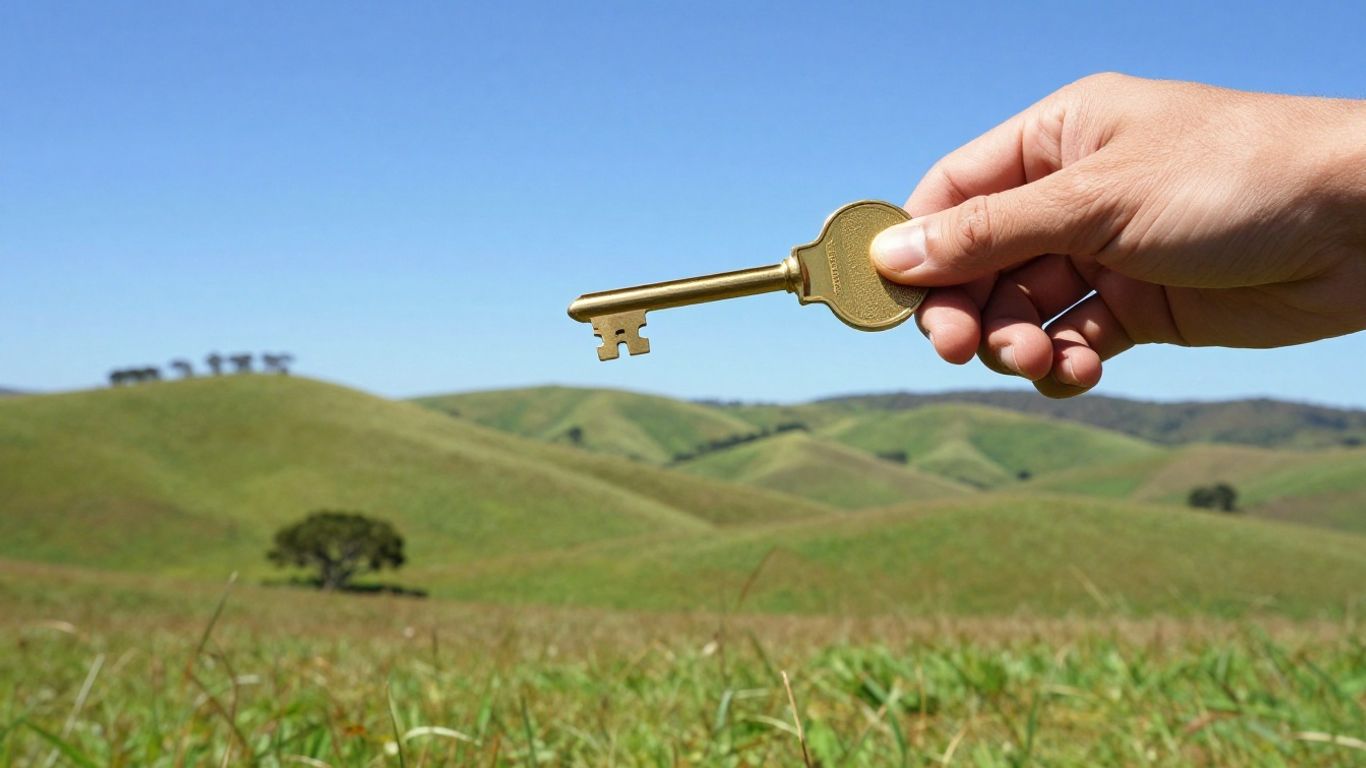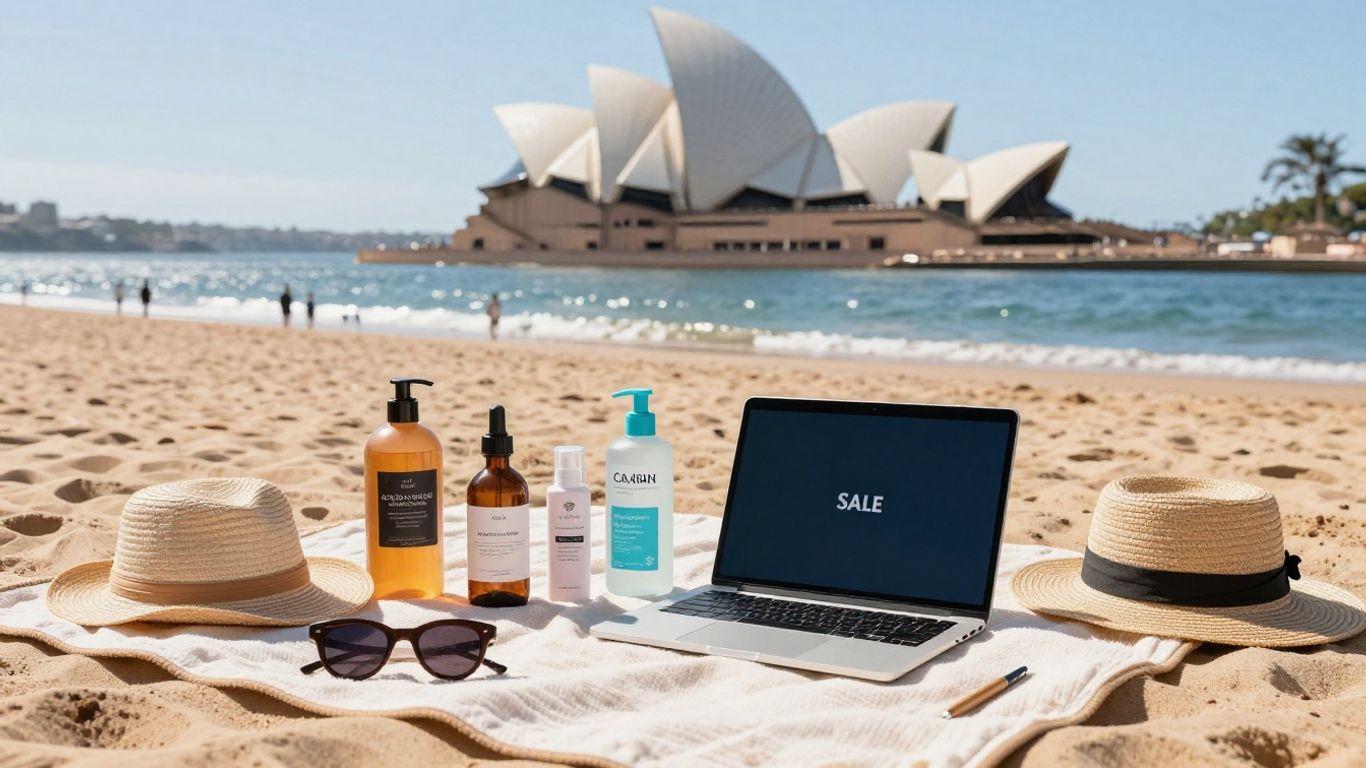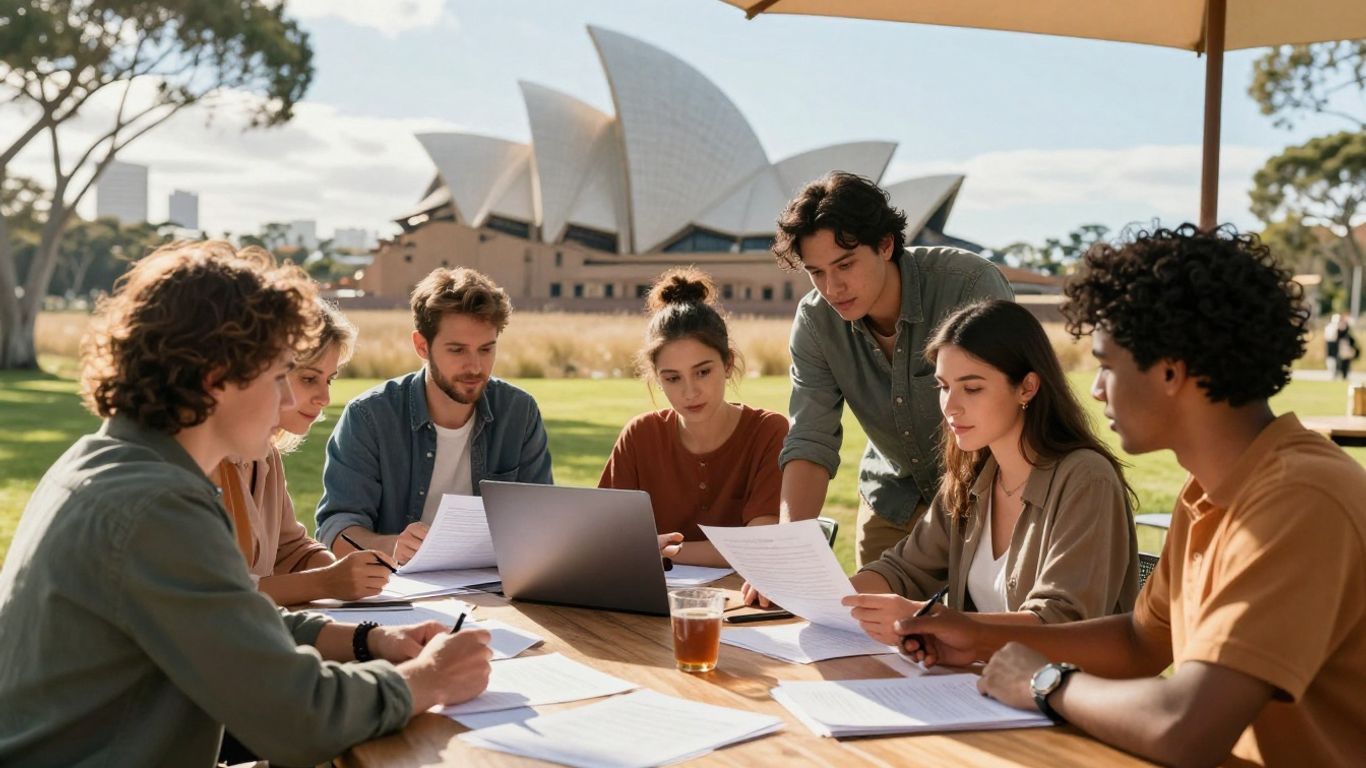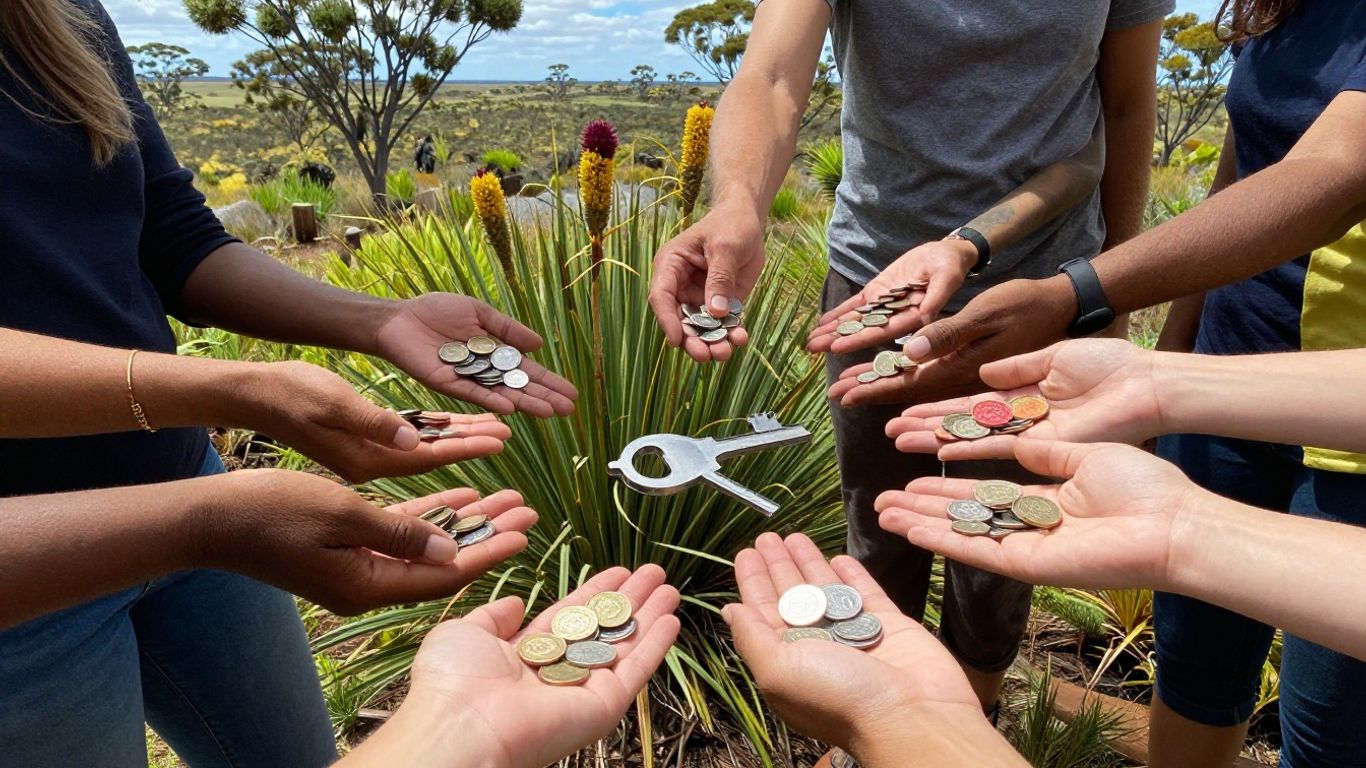G’day, future Aussie adventurer! So, you’re dreaming of golden beaches, epic road trips, and maybe even a cuddle with a koala, yeah? But then you hear whispers about how pricey Australia can be, and suddenly your budget starts doing a nervous little dance. Don’t you worry your pretty little head, mate! Australia might not be the cheapest place on the planet, but with a bit of savvy budgeting for beginners, you can absolutely have an amazing time without emptying your piggy bank. This guide’s gonna sort you out, showing you how to stretch those dollars further down under. Let’s get stuck in!
Key Takeaways
- Australia’s a cracker of a place, but it can be a bit dear. Knowing this upfront helps with budgeting for beginners.
- Accommodation and food can chew up your cash, so getting clever with hostels and cooking your own tucker is a real winner.
- Bus passes are your best friend for getting around the East Coast without blowing your budget.
- Loads of awesome experiences don’t cost an arm and a leg; look for free fun and bundle deals.
- Keep an eye on those sneaky extra costs and stick to your daily spend to make sure your Aussie adventure is all smiles, no worries.
Cracking The Code: Understanding Aussie Costs
Why Australia Is A Bit Pricey
Right, let’s get straight to the point: Australia ain’t cheap. There’s no sugar-coating it. But why is that, eh? Well, a few things contribute. First off, the minimum wage is pretty decent here, which is great for workers but does bump up the cost of, well, everything. Then there’s the tyranny of distance – getting stuff to Australia costs more, so that gets passed on to you. Plus, we’ve got a pretty strong economy, which means higher prices across the board. Don’t stress too much though, there are ways to make it work, and the experience is worth it!
Setting Realistic Budgeting For Beginners Expectations
Okay, so you’re planning your Aussie adventure. Good on ya! But before you start dreaming of beaches and BBQs, let’s talk dosh. Setting a realistic budget is absolutely crucial. Forget those ‘travel Australia for $30 a day’ blogs you might have seen – those are ancient history. Things have changed a lot. A more realistic daily budget, if you’re being savvy, is probably closer to $100-$150 AUD. This covers basic accommodation (think hostels or camping), food (mostly cooking your own), and some transport. Activities will be extra, so factor those in.
Here’s a rough idea of some costs:
| Item | Average Cost (AUD) |
|---|---|
| Hostel Bed | $30 – $50 |
| Basic Meal (cooked) | $10 – $15 |
| Coffee | $5 |
| Bus Ticket (local) | $3 – $5 |
Remember, this is just a guide. Your actual costs will depend on your travel style and where you go. But it’s a good starting point to get your head around things.
The Ever-Changing Price Tag Down Under
One thing you’ll quickly learn about Australia is that prices can fluctuate like crazy. What costs $10 today might cost $15 tomorrow, especially when it comes to accommodation and activities. Seasonality plays a big role. Peak season (summer, school holidays) means higher prices. Shoulder season (spring, autumn) can offer better deals. Also, keep an eye on exchange rates if you’re coming from overseas – they can make a big difference to your daily spend. And don’t forget about those sneaky public holiday surcharges! Always check the fine print and be prepared to adjust your budget as you go. Flexibility is key, mate!
Snoozing On A Budget: Accommodation Hacks

Hostel Life: Your Best Mate For Saving
Hostels are the go-to for budget travellers in Australia. Think of them as your temporary home base, where you can meet other travellers and save a heap of dosh. Dorms are the cheapest option, but private rooms are available if you’re after a bit more privacy. Many hostels also offer backpacker feeds for cheap.
Here’s a rough idea of what you might pay:
| Type of Accommodation | Average Cost (per night) |
|---|---|
| Dorm Bed | $25 – $40 |
| Private Room | $80 – $120 |
Some top hostels include YHA Central, Melbourne, WakeUp! Sydney, and Gilligans in Cairns. These places often have social events, making it easy to meet people.
Camping Under The Stars: A Cheaper Alternative
If you’re keen on the outdoors, camping is a fantastic way to save money on accommodation. Australia has heaps of campgrounds, from basic sites to those with all the amenities. Plus, you get to sleep under the stars! Just remember to factor in the cost of camping gear if you don’t already have it.
- National Park Campgrounds: Often the cheapest, but can be basic.
- Holiday Park Campgrounds: More expensive, but usually have showers, toilets, and sometimes even a pool.
- Free Camping: Some areas allow free camping, but do your research to make sure it’s legal and safe.
Camping is an awesome way to experience the real Australia. Just be aware of the wildlife – keep your food stored properly and be mindful of snakes and spiders. It’s all part of the adventure, though!
Scoring Deals On East Coast Stays
The East Coast of Australia is a popular spot, so accommodation can be pricey. But don’t stress, there are ways to score a bargain. Look into East Coast Australia Package deals which bundle accommodation, tours, and travel passes. Booking in advance is also a good idea, especially during peak season.
- Travel in the off-season: Prices are generally lower outside of school holidays and summer.
- Consider longer stays: Many places offer discounts for weekly or monthly bookings.
- Be flexible with your location: Staying slightly outside the main tourist areas can save you money.
Grub’s Up: Feeding Your Wallet And Your Belly
Alright, let’s talk tucker! You don’t need to live on instant noodles to save dosh while travelling around Oz. With a bit of planning, you can eat well without emptying your bank account. It’s all about being a bit savvy and knowing where to find the best deals.
Cooking Your Own Tucker: Kitchen Savvy
Cooking is your best mate when you’re on a budget. Hostels usually have kitchens, so take advantage of them! Hit up the local supermarkets for ingredients. You’ll be surprised how much you can save compared to eating out every meal. Plus, it’s a great way to meet other travellers and swap recipes.
- Plan your meals for the week. This stops you from impulse buying.
- Buy in bulk where possible. Rice, pasta, and canned goods are your friends.
- Share cooking duties (and costs) with your travel buddies.
Average Costs For A Feed And A Cuppa
Okay, so what are we actually looking at price-wise? Here’s a rough guide to give you an idea:
| Item | Average Cost (AUD) |
|---|---|
| Supermarket Meal | $5 – $10 |
| Cafe Coffee | $4 – $5 |
| Pub Meal | $15 – $25 |
| Takeaway | $10 – $20 |
Keep in mind these are just averages. Prices can vary depending on where you are and what you’re buying. For example, restaurant meals in tourist hotspots will likely cost more.
Budgeting For Beginners: Eating Out Smart
Eating out is part of the experience, right? You don’t want to miss out on trying some Aussie classics. But it doesn’t have to break the bank. Here’s how to enjoy a feed without blowing your budget:
- Look for lunch specials. Many pubs and cafes offer cheaper lunch menus.
- Happy hour is your friend. Score discounted drinks and sometimes even food.
- Check out deal websites and apps for discounts and vouchers.
Don’t be afraid to ask locals for recommendations. They often know the best hidden gems with great food at reasonable prices. Plus, you might discover a new favourite spot that’s off the beaten track.
Getting Around: Navigating Oz Without Breaking The Bank
Alright, so you’re keen to see the sights but don’t want your bank account to spontaneously combust? Fair enough, mate. Getting around Australia can be a bit of a killer if you don’t plan ahead. But don’t stress, there are ways to explore this massive country without needing to sell a kidney. Let’s have a yarn about some options.
Bus Passes: Your Ticket To Ride
Hopping on a bus is a classic way to see the East Coast and beyond. Companies like Greyhound offer Greyhound KM passes that let you travel a certain distance, which can be way cheaper than buying individual tickets. Consider a bus pass if you’re planning on hitting a lot of different spots.
- Flexibility: Hop on and off as you please (within the pass’s limits, of course).
- Cost-Effective: Often cheaper than flying or renting a car, especially for long distances.
- Scenic Routes: Sit back, relax, and watch the Aussie landscape roll by.
Campervan Adventures: Weighing The Costs
The dream, right? Hitting the open road in your own little home on wheels. Campervanning can be an amazing experience, but it’s not always the cheapest option. You gotta factor in rental costs, fuel, campsite fees, and insurance. Plus, unexpected repairs can really sting.
| Expense | Average Cost (per day) | Notes |
|---|---|---|
| Campervan Rental | $80 – $200 | Varies depending on size, age, and season. |
| Fuel | $30 – $50 | Depends on distance travelled and fuel efficiency. |
| Campsite Fees | $20 – $40 | Free camping is possible, but not always convenient or safe. |
| Insurance | $15 – $30 | Essential! |
Campervanning is awesome, but do your sums first. It’s easy to get caught up in the romance of it all and forget about the practicalities. Make sure you’ve got a solid budget and a contingency plan for any unexpected expenses.
Exploring the East Coast Trail
The East Coast is a must-do for most backpackers, and there are heaps of ways to tackle it. You could grab a cheap flight between major cities and then use local transport to explore each area. Or, you could look into organised tours that cover a specific section of the coast. Another option is to check out Australia’s budget airlines for cheap flights.
- Flights: Quick and easy, but can be pricey if you don’t book in advance.
- Tours: Convenient and often include accommodation and activities, but less flexible.
- Local Transport: Buses and trains are good for getting around within cities and towns.
Epic Adventures: Activities That Won’t Drain Your Dough

Australia’s got a reputation for being a bit exxy, but don’t stress, mate! You can still have an epic time without emptying your wallet. It’s all about being a bit savvy and knowing where to look for the good deals. Let’s dive into some ripper activities that won’t leave you eating baked beans for the rest of your trip.
Must-Do Experiences On A Shoestring
Snorkelling or diving on the Great Barrier Reef doesn’t have to cost a fortune. Look for smaller, locally-run tours that offer more affordable rates. Often, these tours will take you to less crowded spots, giving you a more authentic experience. Plus, consider going during the shoulder season (spring or autumn) for better prices and fewer tourists. Another option is to check out some of the mainland beaches for snorkelling; you might be surprised at what you can see!
Here’s a few ideas to get you started:
- Hiking in National Parks: Australia’s national parks are stunning, and many offer free entry or low-cost camping options. Pack your own food and water to save even more. Check out the Blue Mountains near Sydney or the Grampians in Victoria.
- Free Walking Tours: Many cities offer free walking tours led by locals. It’s a great way to see the sights and learn about the history without spending a cent (though tipping is always appreciated if you enjoyed it!).
- Visit Local Markets: Markets are a fantastic place to soak up the local atmosphere, sample some cheap eats, and find unique souvenirs. Check out the Queen Victoria Market in Melbourne or the Fremantle Markets in Perth.
Finding Free Fun In The Sun
Australia is blessed with some of the most beautiful beaches in the world, and guess what? They’re free! Pack a picnic, grab your sunscreen, and spend the day swimming, sunbathing, or surfing. Many beaches also have free BBQ facilities, so you can cook up a snag or two without spending a fortune. Don’t forget to check out local events; many towns host free festivals, concerts, and outdoor movie screenings throughout the year. You can also explore the many budgeting apps available to help you track your spending and find free activities near you.
Remember to always be sun smart! Slip, slop, slap – slip on a shirt, slop on some sunscreen, and slap on a hat. The Aussie sun is no joke!
Package Deals: Bundling For Bigger Savings
If you’re planning on doing a few different activities, consider looking into package deals. Many tour operators offer discounts when you book multiple experiences together. For example, you might be able to get a cheaper rate on a Great Barrier Reef tour if you bundle it with a rainforest walk. Also, keep an eye out for deals on sites like Groupon or Luxury Escapes. Sometimes you can snag a real bargain if you’re flexible with your dates and activities. Don’t be afraid to haggle a bit, especially if you’re booking in a group or during the off-season. You might be surprised at what you can get!
The Daily Grind: Your Everyday Budgeting For Beginners Breakdown
Calculating Your Daily Spend
Right, so you’ve got your overall budget sorted, but how do you make sure you’re not blowing it all in the first week? Breaking it down into a daily spend is the key, mate. Work out how much you can actually afford to spend each day. Don’t forget to factor in those bigger expenses like tours or longer bus trips that might only come up once a week.
Here’s a rough example:
| Category | Daily Cost (AUD) |
|---|---|
| Accommodation | $30 |
| Food | $25 |
| Transport | $10 |
| Activities | $15 |
| Miscellaneous | $10 |
| Total | $90 |
This is just an example, of course. Your daily spend will depend on your travel style and where you are in Australia. Sticking to this daily limit will help you manage your budgeting for beginners effectively.
Unexpected Costs To Keep An Eye On
Australia’s pretty good at throwing curveballs, especially when it comes to your wallet. Here’s a few things that might sneak up on ya:
- Booze: Those cheeky arvo beers can add up quicker than you think. Be mindful of how much you’re spending at the pub.
- Sunscreen: Sounds silly, but the Aussie sun is brutal. You’ll be buying sunscreen constantly, so factor it in.
- Data: Relying on Wi-Fi? Think again. You might need to top up your data more often than you expect, especially if you’re out in the bush.
- Souvenirs: You’ll want to take something home, won’t ya? Set aside a bit of cash for those little mementos.
It’s always a good idea to have a bit of a buffer in your budget for these unexpected costs. Maybe 10-15% extra, just in case. That way, you won’t be completely stuffed if something pops up.
Sticking To Your Financial Goals
Alright, you’ve got your budget, you know what to expect, now how do you actually stick to it? It’s easier said than done, I know. Here’s a few tips:
- Track Your Spending: Use an app, a notebook, whatever works for you. Just keep an eye on where your money’s going.
- Set Realistic Goals: Don’t try to be too strict. Allow yourself a bit of wiggle room, or you’ll just get frustrated and give up.
- Find Free Activities: Australia’s full of ’em! Beaches, hikes, free museums… make the most of what’s on offer without spending a cent.
Is It Worth It, Mate? The Value Of An Aussie Adventure
Experiences Over Expenses
Look, let’s be real. An Aussie adventure ain’t gonna be the cheapest holiday you ever take. But it’s about more than just dollars and cents, right? It’s about the memories you make, the people you meet, and the stories you’ll be telling for years to come. Think about it: swimming in the Great Barrier Reef, hiking through the Blue Mountains, or even just chilling on Bondi Beach. These are the things you can’t put a price on.
Sometimes, you gotta loosen the purse strings a bit to experience something truly special. It’s about investing in yourself and creating memories that’ll last a lifetime. Don’t get bogged down in the small stuff; focus on the big picture and the incredible experiences that await you.
Long-Term Benefits Of Smart Budgeting
Budgeting isn’t just about saving a few bucks while you’re here; it’s a skill that’ll serve you well long after you’ve left our sunny shores. Learning to manage your money, prioritise your spending, and make smart choices is something you can take back home with you. Plus, knowing you funded your own adventure? That’s a pretty good feeling. Think of it as an investment in your future self. By planning your daily spend wisely, you’re setting yourself up for success, both during your trip and beyond.
Making Memories Without The Debt
No one wants to start their post-travel life drowning in debt. That’s why budgeting is so important. It’s about finding that sweet spot where you can experience all the amazing things Australia has to offer without blowing your entire life savings. Here’s a few things to keep in mind:
- Plan ahead: Book accommodation and tours in advance to snag the best deals.
- Cook your own meals: Eating out every night adds up quickly. Hit up the local markets and whip up some tucker.
- Take advantage of free activities: There’s heaps of free stuff to do, like hiking, swimming, and exploring national parks.
| Activity | Estimated Cost (AUD) | Notes |
|---|---|---|
| Great Barrier Reef Snorkel | $195 | Shop around for the best deals. |
| Fraser Island Day Trip | $180 | Consider an overnight tour for a more immersive experience. |
| Surf Lesson – Byron Bay | $80 | Group lessons are usually cheaper. |
Ultimately, an Aussie adventure is worth every penny if you plan it right. It’s about balancing your budget with your desire to experience everything this amazing country has to offer. So, get planning, get saving, and get ready for the trip of a lifetime!
Right, so what’s the go?
So there you have it, folks. Budgeting for a trip to Australia might seem a bit daunting at first, like trying to herd cats, but it’s totally doable. It’s all about being a bit clever with your cash, knowing where to save a few bucks, and not being afraid to cook your own tucker now and then. You don’t need to be a financial wizard, just a bit organised. With a bit of planning, you’ll be enjoying the beaches and the good vibes without stressing about your wallet. So, get cracking on that budget, and you’ll be saying ‘G’day’ to an amazing Aussie adventure before you know it.
Frequently Asked Questions
Why is Australia a bit pricey for backpackers?
Australia can be a bit more expensive than some other places, mainly because the economy is strong. Things like food, a place to sleep, and getting around can add up. But with smart planning, you can still have an amazing trip without emptying your wallet.
What are some good ways to save money on accommodation?
You can save a lot by staying in hostels, especially in shared dorms. Also, think about camping in national parks or finding deals on longer stays, particularly outside of peak tourist times. Booking ahead often helps too!
How can I eat well without spending a fortune?
Cooking your own meals is a top tip! Grab groceries from supermarkets and use hostel kitchens. When you do eat out, look for local cafes or pub specials, and maybe skip the fancy restaurants to keep your budget happy.
What’s the cheapest way to get around Australia?
Bus passes are often your best bet for travelling along the East Coast. For longer trips, look into budget airlines. If you’re with a group, renting a campervan can sometimes work out cheaper than separate transport and accommodation.
Are there many free things to do and see?
Plenty! Many beaches, national parks, and city walks are free. Look for free events, markets, or outdoor movies. Some attractions offer student discounts or package deals if you book a few things together.
How much cash do I really need for a month in Oz?
It really depends on how you travel, but a rough guide for a month might be around $4,000 AUD. This includes a bed, food, getting around, and some fun activities. You can spend less if you’re super careful, or more if you like a bit of luxury!





